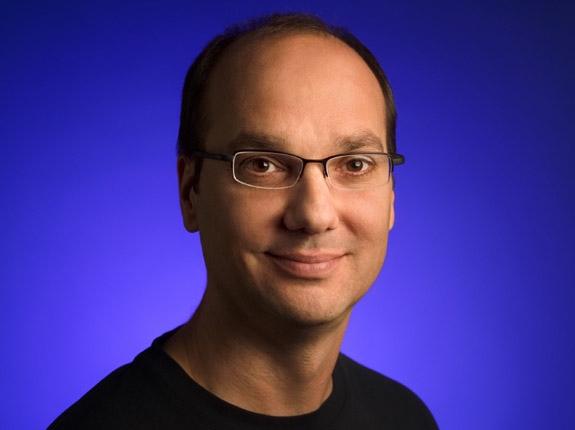Andy Rubin leaves Google's Android team for 'new chapter' at same company
Last updated
Google Android chief Andy Rubin is leaving his position, the company announced on Wednesday, to take on an undefined "new chapter" at the company.
The announcement was made by Google Chief Executive Larry Page in a post to the company's official blog. In it, Page recalled when he and company co-founder Sergey Brin first met Rubin back in 2004.
"He believed that aligning standards around an open-source operating system would drive innovation across the mobile industry," Page said. "Most people thought he was nuts. But his insight immediately struck a chord because at the time it was extremely painful developing services for mobile devices."
The CEO praised Rubin for having "exceeded" the "crazy ambitious goals" Google had for Android. According to Page, Rubin simply "decided it's time to hand over the reins and start a new chapter at Google."
Taking his place will be Sundar Pichai, who has previously worked on the Chrome browser and Apps teams at Google.The pace of innovation has never been greater, and Android is the most used mobile operating system in the world." - Google CEO Larry Page
"The pace of innovation has never been greater, and Android is the most used mobile operating system in the world: we have a global partnership of over 60 manufacturers; more than 750 million devices have been activated globally; and 25 billion apps have now been downloaded from Google Play," Rubin said.
The executive shakeup comes less than six months after Apple had its own major change for its mobile operating system, iOS. Scott Forstall, who previously served as Apple's iOS chief, was forced out at the company last October.
Before Rubin joined Google, he worked at Apple from 1989 to 1992. He then moved on to General Magic, then Danger, which made the Sidekick handset, before starting Android, Inc. He joined Google when the search giant acquired Android in 2005.
Google's Android and Apple's iOS are the two dominant platforms in the modern smartphone space.
 AppleInsider Staff
AppleInsider Staff








 Amber Neely
Amber Neely
 Thomas Sibilly
Thomas Sibilly

 William Gallagher
William Gallagher
 Malcolm Owen
Malcolm Owen
 Christine McKee
Christine McKee










52 Comments
[quote name="AppleInsider" url="/t/156446/andy-rubin-leaves-googles-android-team-for-new-chapter-at-same-company#post_2292565"] "He believed that aligning standards around an open-source operating system would drive innovation across the mobile industry," Page said. "Most people thought he was nuts. But his insight immediately struck a chord because at the time it was extremely painful developing services for mobile devices." [/quote] It also helped that Apple innovated to market first.
And Sun/Oracle.
Too bad General Magic was not a success ...
Nice trick mentioning Forstall as if that has anything to do with this. But it does give you an 'apple connection' to justify posting this obvious attempt at hit whoring.
So did Sundar Pichai previously work as an engineer at Apple too? Is he going to be "borrowing" some Apple IP he picked up from his time there?